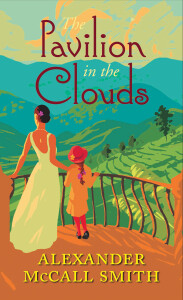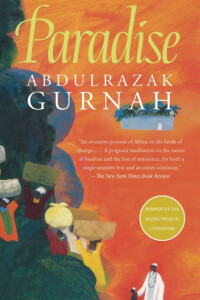
This stand-alone novel takes place in 1938, already setting us apart from the characters because we know what is coming.
Bella Ferguson is eight and lives on the tea plantation in Ceylon, now Sri Lanka, owned by her father. She leads a charmed life: lessons with Miss White, servants to attend to her needs, a beautiful home in the clouds, where she doesn’t have to see the terrible working and living conditions of the plantation workers.
Henry and Virginia, her parents, embody the English empire, somewhat to Virginia’s discomfort. She wonders by what right they should own this land that historically belonged to the indigenous people of the island, and if indeed the British would one day be driven out.
We are uninvited guests, just as we are uninvited guests in every corner of the globe, and yet we take it upon ourselves to dictate how things should be done. That was the massive, almost unbelievable, conceit upon which the whole colonial enterprise was built, and yet nobody seemed to see.
Empire, colonialism: these are weighty subjects, but barely touched upon here.
Meanwhile, Bella has come to believe that there is something worrisome about her governess’s relationship with her father, a concern that she confides to her mother.
I’m a huge fan of Smith’s novels, especially the No. 1 Ladies’ Detective Agency series with Mma Precious Ramotswe, and the philosophical Isabel Dalhousie series, but this one—no. A trite situation: a woman suspects her husband of cheating. And the characters are boring: he is barely present, and she does nothing day after day. She had been teaching her daughter, reading her poetry, but now they have hired the English governess, so she has nothing to do but to wander about and occasionally lunch at the club. And imagine what might be going on.
Maybe I’d have been more interested if there’d been more about Ceylon besides the initial lovely but brief description of the tea plantation. Maybe if the characters hadn’t been so predictable. Maybe if several story threads had been satisfactorily tied up rather than left hanging.
Still, I appreciate Smith’s humor, his moral universe, his gentle philosophical ruminations. My favorite parts of the book center on Bella, with her dolls, Li Po and Po Chü-i, named after Chinese poets. She carries on conversations with them and attributes distinct personalities to them, while they advise her out of their great wisdom. I love the way they participate in scenes like any human character.
I may be the only person aside from Li Po who is skeptical of the ending. I don’t want to give anything away, but really! Well, perhaps I am too cynical. Time for another dose of Alexander McCall Smith’s world.
What is your favorite Alexander McCall Smith book?
